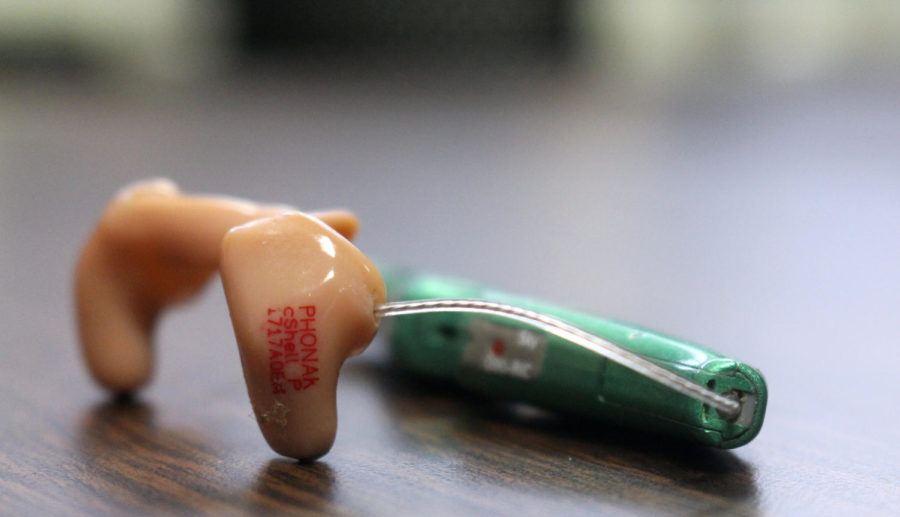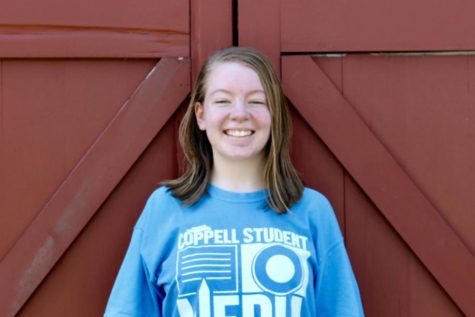Representation in media extends greater than race, gender
For years, disabled people, such as Deaf people, have never had representation in media. With movies such as Wonder Woman and Black Panther coming out, it is time for disabled people to be represented.
April 16, 2018
On March 23, Apple announced that it planned on releasing 13 new emojis. These emojis are not smiley faces or flags.
They are emojis for disabled people. They are wheelchairs, canes, prosthetics and hearing aids.
A few weeks later, Tommy Hilfiger released an Adaptive clothing line, a clothing line specifically made for people in wheelchairs, or with prosthetic limbs.
I have worn hearing aids since I was 5. When I found out about the new emojis, I was so happy that I started crying. Why? Because when everyone is screaming about racial and gender representation, one group conveniently gets left out. The disabled community.
The years 2017 to 2018 has been a good time for women and people of color in the media. With the release of Wonder Woman and Black Panther, females and African-Americans get to see themselves as superheroes.
They are finally getting the representation they are fighting for, and it is truly, truly fantastic.
Growing up, I was the only legally deaf (or hard-of-hearing) kid I knew. I felt alone, and it was hard for me to be proud of who I am. I was told that what I was was pitiful. As a result, I would hide my hearing aids with my hair.
I am also a huge fan of Marvel, and I grew up that way. Captain America came out when I was 8, and I went to see it, as well as every Marvel movie following it (excluding Deadpool).
You could imagine my surprise, however, when two years ago, I discovered that in the comics, Hawkeye wears hearing aids. He is Deaf.
I thought to myself, why did I never see this in the movies? Some argued it was because he was not born deaf. He was only Deaf for a short period of time in the comics.
I did not care.
All my life, I had never had someone to relate to. I was on my own, and I know that I was not the only deaf child who felt this way.
Marvel had the opportunity in 2012, when The Avengers came out, to change that feeling. It would have changed the way deaf children perceived themselves, and it would have changed the way hearing people view deaf people.
And they did not take it.
When there are disabled characters in a movie or TV show, they are not represented correctly.
First of all, 95 percent of disabled characters are played by able-bodied actors. This fact is as outrageous as when white actors play Asian characters, but this fact is rarely acknowledged by the abled-community.
Newsflash: The people who know how to be disabled are the people who are disabled.
Secondly, disabled characters rarely have a main role. “Daredevil”, “Switched at Birth” and Me Before You are the only mainstream movies and TV shows that have a main character with a disability.
This choice perpetuates the idea that disabled people cannot be central to a person’s life, or even have an interesting enough life.
When there is a disabled character in media, they are usually there to teach some type of lesson to the main character.
We are not an object to be used. We are people.
When there is a disabled character, they often find some type of ‘miraculous’ cure and they are ‘fixed’. This choice is perhaps the worst of all.
I do not know a single person with a disability that wants to be abled. We have times where we are frustrated at our disability, but ultimately, most disabled people would not change their disability for the world.
Reaching that stage of confidence is hardly easy. We live in a world that tells us that what we are is shameful and needs to be fixed. It is already difficult enough to be proud of who we are when we have every right to be. Adding in this idea of a ‘cure’ worsens an already difficult situation.
Representation matters. The wonders of having a deaf Avenger for me and for any deaf person would have changed so many things for me and for deaf people and for hearing people. It benefits everyone. And it applies to more than just deaf people, it applies to all people with various kinds of disabilities.
The emojis, no matter how small and insignificant, are a step forward in representation for disabled people.
Follow Claire on Twitter @cclements825
*Note: Deaf is capitalized in some sentences because when referencing a culturally Deaf person (meaning they take part in the culture), it is capitalized. When only medically deaf (meaning they cannot hear), it is lowercase.











Farah Merchant • Apr 17, 2018 at 10:30 pm
This is such an enlightening story. It’s very well-written, and I hope that things change in the future.
Anthony Cesario • Apr 17, 2018 at 8:24 am
Great story Claire! I think this sheds light on an important issue and it was very well-written and impactful.
Pramika Kadari • Apr 16, 2018 at 10:01 pm
Love this story Claire! it’s very powerful.
Sofia Guerrero • Apr 16, 2018 at 5:21 pm
Wow, great job! This piece is really insightful and powerful, and more people should be made aware of this.